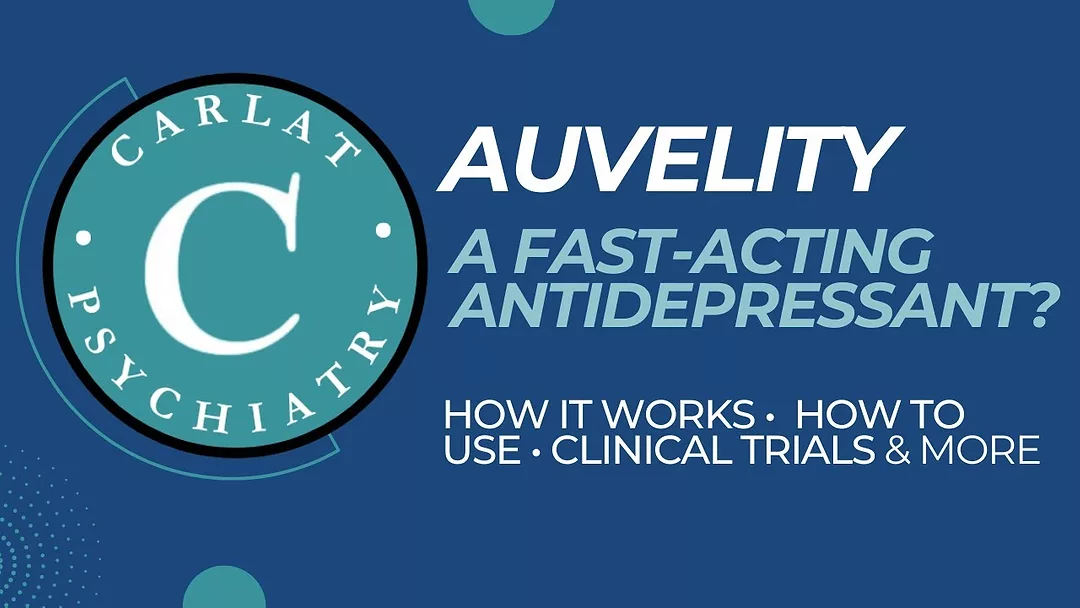In today’s video, we’re taking a deep dive into Auvelity, a new antidepressant that combines Dextromethorphan and Bupropion. While Bupropion is well-established in the treatment of depression, Dextromethorphan is less familiar in psychiatric contexts. It’s primarily known as a cough suppressant in products like Robitussin DM. The combination in Auvelity aims to offer a new approach by leveraging both drugs’ unique benefits. Auvelity’s primary claim to fame is its dual-action mechanism.
Dextromethorphan enhances glutamate transmission through NMDA antagonism, a mechanism seen in other third-line treatments for depression such as ketamine and amantadine. This approach goes beyond traditional monoamines like serotonin and norepinephrine, which are targeted by most antidepressants. Dextromethorphan is also thought to have anti-convulsant and neuroprotective effects and can block serotonin and dopamine reuptake. This novel mechanism makes Auvelity the first oral antidepressant to incorporate this specific approach. The combination of Dextromethorphan and Bupropion in Auvelity helps achieve a pharmacokinetic goal by extending the half-life of Dextromethorphan. Bupropion inhibits CYP2D6, the enzyme responsible for metabolizing Dextromethorphan, thus prolonging its effects from a few hours to over 20. This extended duration might contribute to Auvelity’s effectiveness.
Clinical trials provide promising results. Compared to Bupropion alone, Auvelity has shown quicker onset and greater efficacy in treating depression. One large trial, involving over 300 patients, demonstrated that Auvelity effectively improved depressive symptoms faster than other antidepressants. A smaller trial confirmed these findings, noting a significant remission rate of 47% after six weeks, compared to just 16% with Bupropion alone. However, the drug’s effectiveness for treatment-resistant depression is still uncertain, as a large trial in this area yielded negative results. Regarding side effects, Dextromethorphan’s sedative properties can lead to issues such as somnolence, nausea, dizziness, headache, and dry mouth. There is also concern about potential misuse. While the clinical trials showed no inappropriate use, the combination with Bupropion could potentially push Dextromethorphan into higher, possibly abusable levels. Auvelity is quite costly, with prices around $1,200 per month.
For those looking for more affordable options, generic alternatives might be used, though these are not FDA-approved and come with their own set of considerations. Generic Bupropion and Dextromethorphan could be combined to mimic Auvelity’s effects, but this approach isn’t officially endorsed. There are still many unanswered questions about Auvelity. For example, can Bupropion alone be used initially, with Dextromethorphan added if needed? What happens if doses are adjusted, or if Dextromethorphan is tapered off? These aspects remain under investigation. In summary, Auvelity offers a new approach with its combination of Dextromethorphan and Bupropion, providing a faster therapeutic onset and novel mechanism of action. While it shows promise in treating depression, its high cost and potential for misuse are important considerations. For more detailed information and updates, check out our full article on the CARLAT website and consider subscribing to the Carlette Psychiatry Report for in-depth psychiatric news and clinical insights.
Related:


_-The-Breakthrough-Antipsychotic-That-Could-Change-Everything.webp?t=1729528747)



